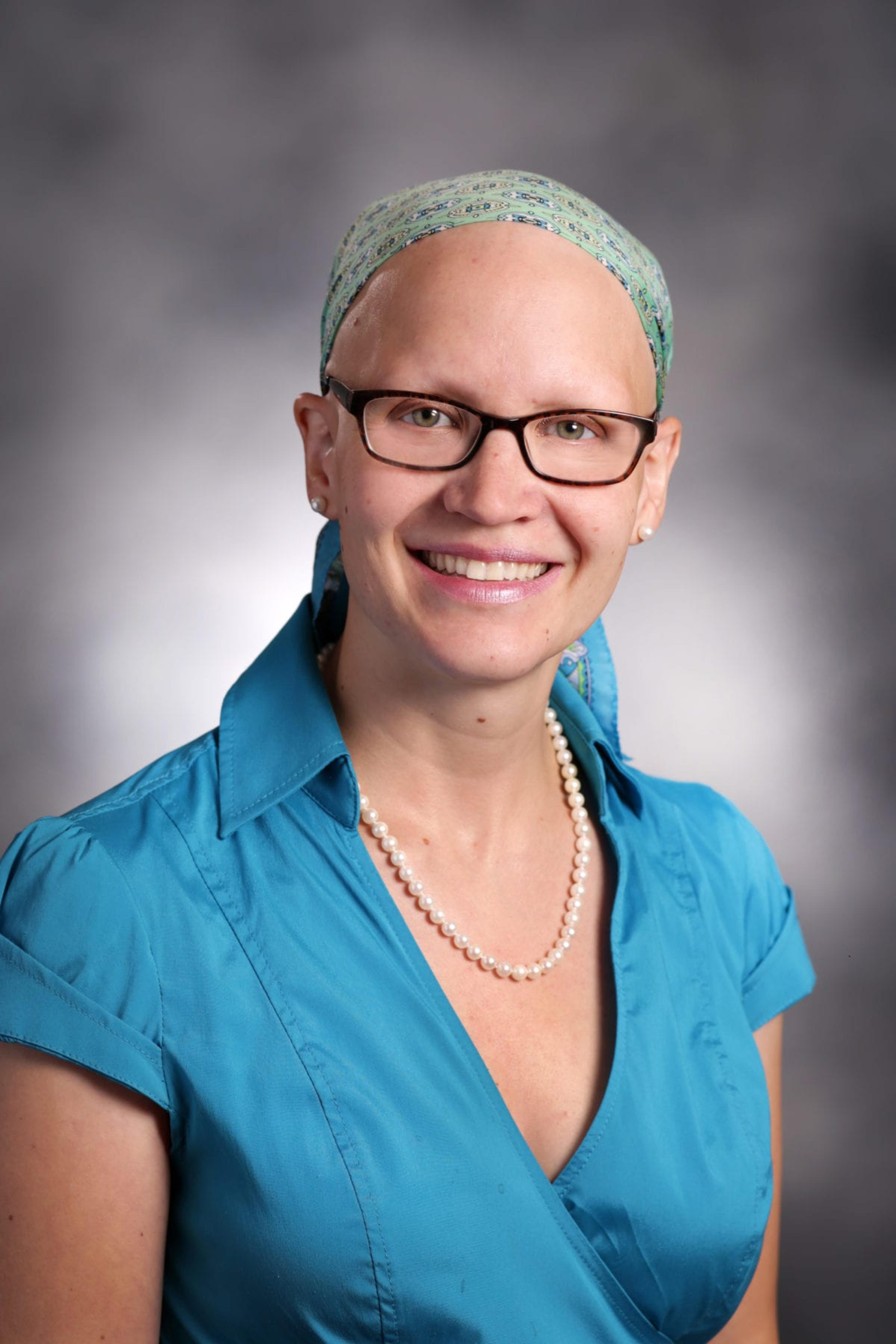Addiction Specialist Advocates Understanding for Patients Addicted to Opioids

Julie Bitely
| 4 min read

If there’s one thing that unifies Dr. Cara Poland’s patients, it’s that they didn’t intend to ever need her help.
“Nobody actually wants to be my patient,” she said. “But they’re often thankful to be my patient.”

Dr. Cara Poland
(courtesy photo)
(courtesy photo)
As an addiction medicine specialist at Spectrum Health, Poland treats people struggling with opioid addiction. She explains that nobody intends to suffer from addiction, but the back stories of how they came to need her assistance are vast and varied.
Addiction cuts across age, class, gender and race. The disease is stigmatized, leaving those who suffer to hide their struggle. The guilt and shame often feed into a downward spiral, Poland said. With the opioid epidemic in Michigan and the country continuing to rise, Poland hopes that knowledge surrounding the issue will lead to more people seeking help faster.
“There is no evidence that somebody has to hit rock bottom before they can be successful in treatment,” she said.
Help is sorely needed. The number of deaths from drug overdose has more than tripled from 1999 to 2015. Overall, 4,722 Michigan residents died from 2009 to 2012 due to unintentional or undetermined intent poisonings. Of these overdose deaths, 19.4 percent were definitively opioid-related.
“We have seen exponential growth in the rate of overdose death and addiction,” Poland said.
When prescription opioids started being prescribed at high rates for pain relief, doctors didn’t realize they were as dangerous as they are. While the drugs hit the brain’s pain centers, they also trigger areas of pleasure and reward, which can lead to addiction. Overdose occurs when the drugs impact the breathing centers of the brain at doses sufficient to stop breathing.
The way people respond to the drugs is also different. Poland said about half the population actually reacts negatively to opioids with symptoms such as nausea, vomiting, grogginess and mental fogginess. For them, their bodies have a built-in reaction that protects against addiction. For the other half of the population, their brains are primed to be more receptive to the feel-good effects that opiates can have.
Poland sees recent developments in Michigan making the overdose-reversing drug naloxone available without a prescription as a positive step. For people with opioids available, taken as prescribed or illicitly, having naloxone available reduces the risk of death. Although it will take a while for every pharmacy to roll out the program, Poland believes it will save lives in conjunction with community distribution of naloxone.
“Anyone can walk into any registered pharmacy, receive training and this life-saving medication,” she said.
Community organizations such as Grand Rapids’ The Red Project can also be utilized for naloxone training and distribution. Poland is the organization’s immediate past-board president.
To defeat the epidemic, Poland said research-backed treatment programs must be made available to more people. Many recovery programs advocate for complete and total abstinence from drugs, but Poland said medication-assisted treatment is often most effective in keeping people from harm. She said recognizing that opioid addiction is a disease and that recovery comes in many shapes and sizes, sometimes with multiple starts and stops, is critical.
“We need to realize that it is a chronic, relapsing and remittent disease like diabetes,” she said.
“Just as a patient with diabetes wouldn’t be denied treatment if they ate a piece of chocolate cake, people suffering with addiction need the same understanding if they relapse and should, at a minimum, be offered medication support,” Poland explained. “Somehow we treat the two very differently despite the fact that the same areas of the brain are involved as dopamine is released both after having a fantastic dessert and after having an illicit substance.”
Yet, despite the challenges and stigma surrounding the disease, Poland remains optimistic that evidence-based treatment options are becoming more available.
“I try to focus on the positive impact we can have by expanding treatment to enable more people to get into and stay in recovery,” She said.
In her role as the Michigan Chapter President of the American Society of Addiction Medicine, Poland has trained over 50 Michigan providers to prescribe buprenorphine products for office-based opioid treatment. She firmly believes that partnering to provide education, prevention and treatment are the cornerstones to helping improve the health of our communities. Through this, Poland emphasizes, “we will be able to reverse the current epidemic.”
If you liked this post, you might also enjoy:
Main image photo credit: transp





